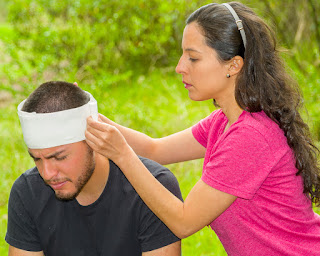Proving Fault For Injury Received At a Dangerous Clearwater Property
Accidents that are caused by defective or dangerous property, either inside or outside a building, are called "premises liability" accidents. These accidents can take place at commercial buildings such as stores or offices, residences including both private homes and rental properties, or on public property including parks, streets, or public transportation. A premises can be dangerous for many reasons including:
• Faulty design
• Improper construction
• Inappropriate building materials
• Poor maintenance
• Dangerous clutter
A premises that is dangerous or defective can lead to a slip and fall accident, can cause an individual to trip or cause an object to fall or hit one or more individuals. If a dangerous property condition has caused you or someone you love to become injured, it is important to understand who might be responsible for your injuries.
Basic Clearwater Premises Liability
There are two basic rules to determine who is responsible for a premises accident.
1) Keep the Property Safe: The owner or individual who occupies the property has a legal duty to anyone who enters to keep that person free from unreasonable risk of injury because of the design, construction, or condition of the property.
2) Visitor Use of the Property: The second rule of premises liability applies to the conduct of the injured person. If a person gets injured while acting in an unexpected, unauthorized, or dangerously careless way, the property owner or occupier may not be responsible.
Injured Clearwater Employees
The rules regarding premises liability extend to employees who are injured on their employer's property. In that instance, however, the employee must file a worker's compensation claim rather than a personal injury claim. If an employee is injured on a premises not owned by his or her employer, the employee can file a personal injury claim against the property owner based upon premises liability.
Injury on a Clearwater Commercial Property
When an individual is injured at a store[1], office, amusement park or another business, whether the owner or occupier is legally responsible for the accident is often times determined by where the accident occurred and what the lease or other business contract says about such liability. The injured person should notify the business about the accident and injuries and the business's insurance company will either handle the claim itself or pass the matter on to the building owner's insurance company. This issue should be discussed with an experienced Clearwater premises liability attorney who can determine who is responsible for compensating the victim for damages and injuries.
Clearwater Private Residences
The rules of legal responsibility for accidents occurring on private residences depend, in part, on the type of residence.
• Rented apartment. If you are a guest or tenant who is injured in an accident on rental property, the individual who is responsible for maintaining the area that caused the accident is usually responsible for the damages. The landlord, for example, is responsible for everything outside an apartment including hallways, stairs and entrances and for the immovable things inside such as floors, walls, fixtures and appliances that came with the apartment. The tenant is responsible for the movable things inside an apartment.
• Private home. If you are injured in an accident caused by a dangerous or defective condition at a private home, the owner of the home is likely responsible. If the entire home is rented out, the tenant might also be responsible.
• Adjoining Properties. If an accident that occurs at the edge of two properties, such as at a fence on a property line, it may not be immediately clear whose property caused the accident. In these situations, it is very important to retain the services of a skilled Clearwater premises liability lawyer.
Trespassing in Pinellas County
It is important to note that when an individual is a trespasser onto a defective or dangerous property, there may be no legal basis for a request for compensation. Florida law defines a trespasser[2] as someone “who enters the premises of another without license, invitation, or other right, and intrudes for some definite purpose of his own, or at his own convenience, or merely as an idler with no apparent purpose, other than perhaps to satisfy his curiosity.”
Contact a Clearwater Premises Liability Lawyer
If you have received an injury while visiting a defective or dangerous property, a third party may be liable for your damages. At the Dolman Law Group, our skilled premises liability attorneys will investigate your case and protect your rights under Florida law. Please call our office at 727-451-6900 today.
Dolman Law Group
800 North Belcher Road
Clearwater, FL 3375
(727) 451-6900
References:




Komentar
Posting Komentar